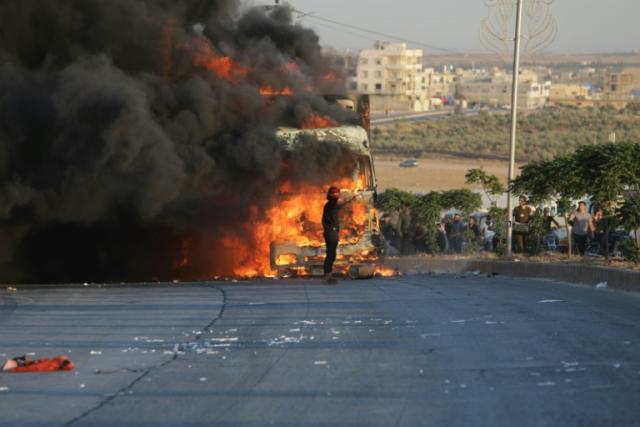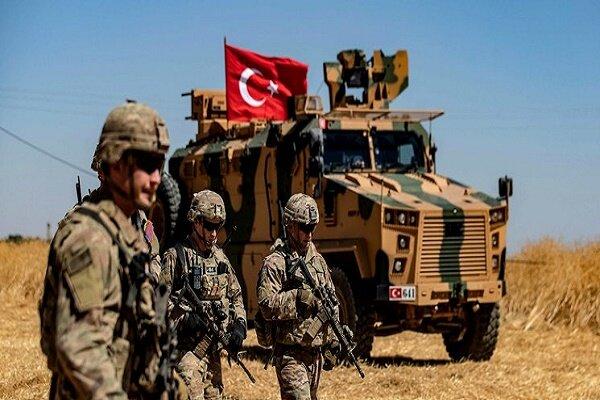What to expect from the Türkiye-Syria normalization process? Keeping enemies closer
On June 30, violent mass anti-immigrant riots erupted in Turkish Kayseri city after a Syrian national allegedly sexually abused a minor and saw the burning of dozens of businesses and vehicles belonging to Syrians in the province.
As a result, Turkish Interior Minister Ali Yerlikaya said 447 people have been detained after provocative protests against refugees living in Türkiye. Following riots that targeted Syrians in Türkiye’s central Anatolian province of Kayseri, ultra-nationalist protests filled streets in several other provinces, including Istanbul.

The mass exodus of Syrian refugees to Türkiye following the long-term civil war in the neighboring country significantly boosted public discontent and eroded domestic security in the southern provinces of the country. Throughout these years, numerous violent terror attacks were perpetrated in large urban areas of Türkiye involving the members of Syrian refugee communities. While the recent devastating terror attacks revealed the scale of religious radicalization among Syrian refugees in Türkiye, it also put additional pressure on the ruling Justice and Development Party (AKP).
Given the increasing economic and social burden, in 2023, President Recep Tayyip Erdogan signaled his readiness for diplomatic normalization with Syria after years of confrontation. As such, Russia, a staunch supporter of Syria’s Bashar Assad, arranged several meetings between defense ministers and intelligence chiefs from Russia, Türkiye, Syria, and Iran in July 2023 to mediate the potential normalization between Ankara and Damascus. However, due to political reasons, the diplomatic normalization remained incomplete.
Although the Assad regime is suffering from a prestige problem due to the country’s fragmented posture, it has been invited to the Arab League summits in 2023 as a part of an extended rapprochement with the Arab world. However, after a year of pause, Ankara repeatedly reiterated the idea of normalizing ties with Damascus, particularly amid rising outcry within the Turkish society regarding Syrian refugees. The timing of the recent normalization attempts is interesting as the AKP government lost the last municipal elections in Türkiye to the main opposition party of the Peoples' Republican Party (CHP), which critically assessed the government’s refugee policy.
Moreover, the worsening economic situation, inflation, and tumbling national currency are also core reasons behind the Erdogan government's willingness to mend ties with Syria. The successful normalization will enable both states to adopt a new strategy for the gradual return of refugees to their homes. Indeed, such an attitude would relieve Türkiye's economic crisis, enabling it to alleviate domestic stability in the border provinces.
Nevertheless, the Turkish government's positive signal to Damascus coincided with violent protests on both sides of the border, with dozens of people arrested, injured, and killed. Unsurprisingly, the riots in Kayseri triggered counter-protests against Turkish forces in northern Syrian areas controlled by Turkish-backed rebels. Protesters there were seen burning Turkish flags. Hence, some argued that anger has been simmering within Turkish-backed Syrian groups over positive signals Erdogan and Syrian President Bashar al-Assad have sent in the past year regarding the resumption of stalled high-level talks between Ankara and Damascus.
Notwithstanding various factors, for Türkiye, security is the main reason for normalization to completely eliminate terrorist groups like the Kurdistan Workers' Party (PKK), the remnants of the Islamic State (ISIS), and other armed militant groups posing an imminent threat to border security. Since the civil war unfolded in Syria, the PKK and YPG/PYD attempted to capitalize on chaos and instability by establishing an "independent state" in northern Syria, something that the Assad and the AKP government strictly reacted to.

Therefore, Ankara maintains a military presence in these territories to thwart the Kurdish militia and other terrorist elements. In the Syrian case, in a meeting with Russian President Vladimir Putin’s special envoy to Syria, Alexander Lavrentiev, Assad affirmed Syria’s openness to all initiatives related to the relationship between Syria and Türkiye, based on the sovereignty of the Syrian state over all its territories. Although the bilateral positive signals on diplomatic normalization reflect an important milestone, both states are yet to go through a tumultuous process of rebuilding confidence and partnership after long years of standoff.








